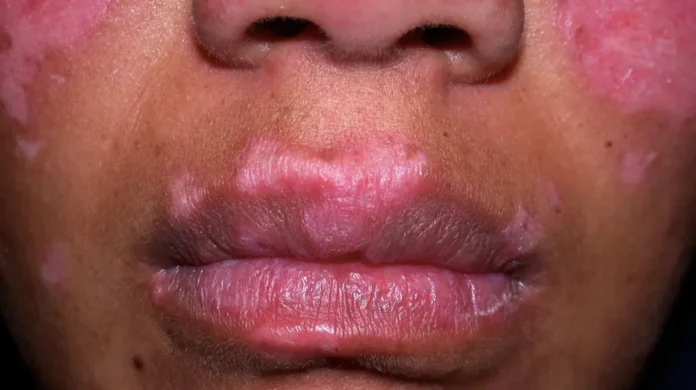From misdiagnoses and delayed treatments to emotional and financial strain, Nigerians living with lupus face an invisible war. It’s a battle waged within the body — unpredictable and often misunderstood — that leaves families drained and desperate.
A Mother’s Unseen Agony
In October 2023, Mary (not her real name) watched her world unravel. Her 27-year-old son, Aboyeji, once full of life, was reduced to a shadow of himself — tormented by joint pains and persistent feverish symptoms no one could explain.
Every medical visit brought the same answer: malaria.
Every new hospital promised hope, only to deliver confusion.
And every wrong diagnosis dragged the family deeper into despair.
“I used to cry in the shower,” Mary admitted, “not to feel better, but just to let it out where no one could hear.” Her professional and personal life took a back seat. Her only mission was to save her son.
But love, she learned, wasn’t always enough.
With every failed treatment, whispers of spiritual attacks grew louder. In desperation, Mary turned to prayer mountains and spiritual healers, seeking answers modern medicine had failed to provide. It wasn’t until a chance encounter with a perceptive doctor at a private hospital that she was directed to the Lagos State University Teaching Hospital (LASUTH).
There, the mystery was finally solved: Aboyeji had systemic lupus erythematosus.
The Reality of Lupus
The diagnosis, though long overdue, offered some clarity — and a new set of challenges.
Lupus is an autoimmune disease where the body’s immune system attacks its own organs and tissues. It mimics other illnesses, making it difficult to diagnose. The Mayo Clinic notes that it can affect joints, kidneys, skin, brain, and other major organs. The telltale butterfly-shaped rash is absent in many cases.
For Mary and Aboyeji, the relief of having a name for the illness quickly gave way to the crushing burden of lifelong care. From tracking medication schedules to adjusting meals and monitoring flare-ups, their lives now revolve around hospital visits and medication costs.
“We’ve spent over ₦4 million since late 2023,” Mary said tearfully. “Some drugs cost ₦180,000 per pack, and we need more than two packs a month. There’s no break — not financially, physically, or emotionally.”
When the Body Turns on Itself
Despite everything, Aboyeji tries to remain hopeful. The physical pain, he says, is bearable compared to the emotional toll of watching his mother suffer.
“When she cries, that’s what breaks me,” he confessed. “I’ve trained myself to endure the flare-ups. They usually last four to five hours. But seeing her hurt — that’s worse.”
The illness has taken a toll on his career ambitions, too. Studying to become an engineer, Aboyeji dreams of working in electrical wiring — a physically demanding job he fears he may no longer be fit for.
“Some mornings, I wake up and feel like I ran a marathon in my sleep,” he said. “And people don’t understand. They think I’m lazy — or worse.”
Stigma and Isolation
Beyond physical pain, lupus carries a heavy social cost. Aboyeji shared how many of his female friends grew distant once they noticed his medications.
“They assume I have HIV,” he said. “I’ve learned not to explain anymore. I just hide it.”
This stigma isn’t unique to him. Lupus, though non-contagious, is misunderstood, especially because sufferers often look healthy.
Public Figures, Private Battles
In 2022, Nollywood actress Kemi Afolabi revealed she was living with lupus. The diagnosis left her so distraught that she began preparing for death.
“I wrote my will and bought a burial vault space,” she shared in an interview. “The doctor said I had about five years left.”
For months, Afolabi endured countless hospital visits and tests with no answers. At one point, she was on oxygen for a month. She had to sell her properties to cover medical costs.
“The worst part was not knowing,” she said. “When I was finally diagnosed, it was with a condition that has no cure — only management.”
A Decade of Misdiagnosis
For Olubukola Sanusi, the journey to a proper diagnosis took over a decade. Each fever, joint ache, or bout of exhaustion was dismissed as malaria or typhoid.
“I questioned my own reality,” she said. “People thought I was imagining it.”
By the time she was accurately diagnosed, lupus had already robbed her of years of health, stability, and community.
“The worst part wasn’t the pain,” she said. “It was the loneliness. No one believed me because I didn’t ‘look’ sick.”
Olubukola eventually found strength in her suffering, launching the Lupus Remedies Global Support Foundation to support others on the same path.
Living on the Edge
Favour Michael, diagnosed 28 years ago, said lupus changed her life entirely.
“There’s nothing I didn’t suffer — neurological problems, skin issues, kidney complications,” she said. “But I held onto hope. Lupus is a disease that teaches you resilience, every single day.”
The disease, she explained, is deeply deceptive. “You can feel fine one moment and collapse the next,” she said. “And then you’re faced with tests and bills all over again.”
Why Lupus Remains a Mystery
Experts say lupus is so difficult to diagnose because it mimics more common ailments.
Prof. Femi Adelowo, a rheumatologist at LASUTH, explained that doctors often expect to see specific signs like the malar rash. But many lupus patients don’t present with that.
“Doctors keep treating patients for malaria or typhoid,” he said. “By the time they reach us, vital organs may already be damaged.”
He also highlighted a shortage of rheumatologists in Nigeria, and how many medical students receive little to no training in autoimmune diseases.
Dr. Hakeem Olaosebikan, another LASUTH rheumatologist, stressed that lupus can affect nearly every organ. “It’s an internal war,” he said. “And since you can’t see it, it gets ignored.”
Treatment, though available, is expensive and lifelong. Experimental therapies like T-cell treatments show promise but remain inaccessible to most Nigerians.
Final Word: Hope in the Midst of Pain
Lupus may be invisible, but its impact is devastating. For patients like Aboyeji, Afolabi, Olubukola, and Favour, it has reshaped everything — their futures, their relationships, their sense of self.
Yet, amid the suffering, there’s also strength. From advocacy foundations to daily silent battles fought in hospital wards and bedrooms, Nigerians living with lupus continue to push forward.
They hope, one day, awareness will catch up with the disease.
And maybe then, they won’t have to suffer in silence anymore.



